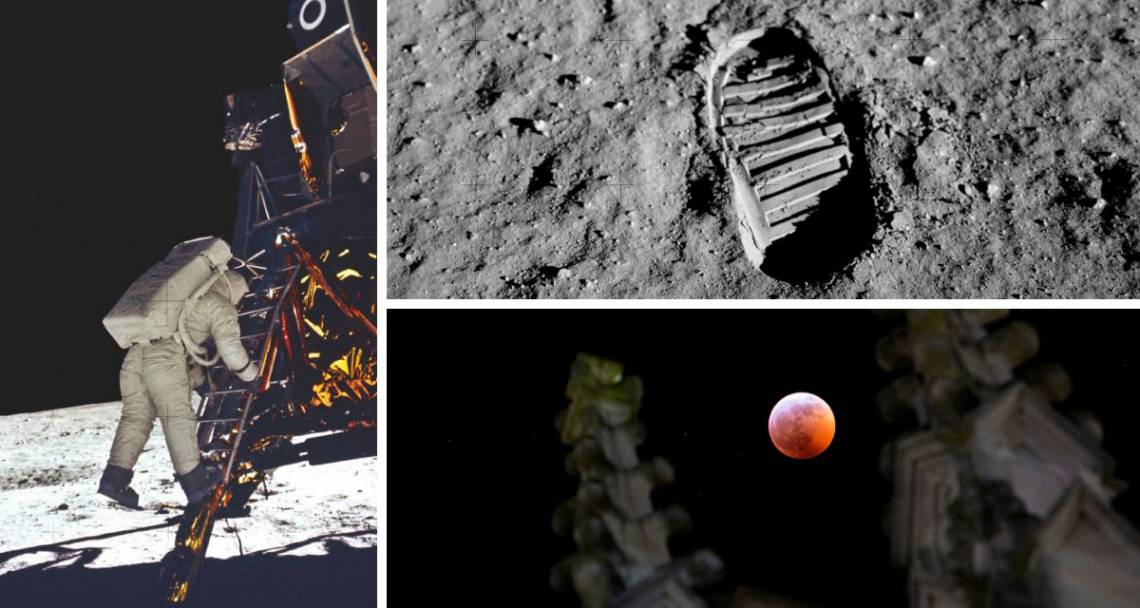
The Apollo missions to the moon — which culminated 50 years ago with man walking on the moon — delivered what President John F. Kennedy sought when he challenged Congress to a space race with the Soviet Union in 1961: They restored the luster of American science and technology after the Soviet coup of Sputnik in 1957.
And while manned spaceflight captured the public’s imagination, NASA’s six human flights to the moon, spread over four years, produced no compelling reason to repeat the performance. Even Kennedy developed misgivings about the value of the program. But once he was assassinated, Apollo became a sacred tribute to the fallen leader, immune to cancellation or even postponement.
Fueled by the national euphoria and worldwide admiration following the first manned landing on the moon by Apollo 11 on July 20, 1969, NASA’s Space Task Group reported two months later that the United States should reprise its triumph by sending men to Mars. Mired in Vietnam, stagflation, oil embargoes, environmental worries, and civil unrest, neither President Richard Nixon nor Congress displayed any enthusiasm for such a budget-busting commitment. In the end, Nixon settled on “the next logical step” — NASA would build a space shuttle to fly to a space station, which would serve as the launching platform for a manned Mars mission in some distant but foreseeable future.
The space shuttle has come and gone without bringing us any closer to Mars. NASA promised that it would reduce the cost of access to Earth orbit by 90 percent or 95 percent. In reality, at more than $1 billion per flight, it cost more than the Saturn launch vehicle it replaced. The Soviets built a knock-off space shuttle, the Buran, but never found a good reason to move beyond a single test flight.
“Meanwhile, unmanned spacecraft have flown around our solar system and beyond. And they have landed on Mars. They have proved to be better explorers and investigators than humans because they can go farther, stay longer, work until they die, and risk — even sacrifice — themselves in suicidal experiments. Furthermore, they see, feel, and hear with more range and accuracy than humans. And they do not require the life-support and safe return that humans do.”
-- Alex Roland
The International Space Station — scheduled for retirement sometime in the 2020s — also failed to be a next logical step to Mars or to perform any function commensurate with its $100 billion-plus construction cost or $3 billion annual operating costs.
Meanwhile, unmanned spacecraft have flown around our solar system and beyond. And they have landed on Mars. They have proved to be better explorers and investigators than humans because they can go farther, stay longer, work until they die, and risk — even sacrifice — themselves in suicidal experiments. Furthermore, they see, feel, and hear with more range and accuracy than humans. And they do not require the life-support and safe return that humans do.
Telescopes in Earth’s orbit have sensed data from the depths of the universe across wide swaths of the electromagnetic spectrum. Satellites of Earth conduct scientific studies of the planet, speed our communications around the globe, track our weather patterns, support our national security establishment, and provide the GPS signals that direct our travel on land, at sea, and in the air. And all of them operate at a small fraction of the cost entailed in sending humans to do their jobs.
President Donald Trump has promised to return humans to the moon by 2024. Pay no mind. All Republican presidents since Dwight D. Eisenhower have promised a manned space spectacular as part of their re-election campaigns. And all of these proposals either had disappointing results or never even got off the ground.
The first Apollo moon landing was a spectacular national and technological achievement. It also proved to be a dead end. The real promise of space exploration was realized by those ingenious, tireless, economical and endlessly versatile unmanned spacecraft.